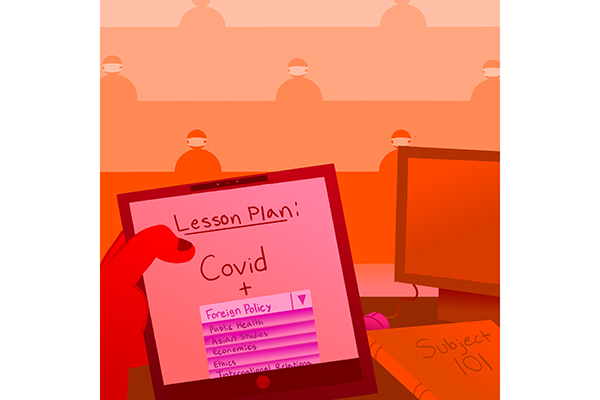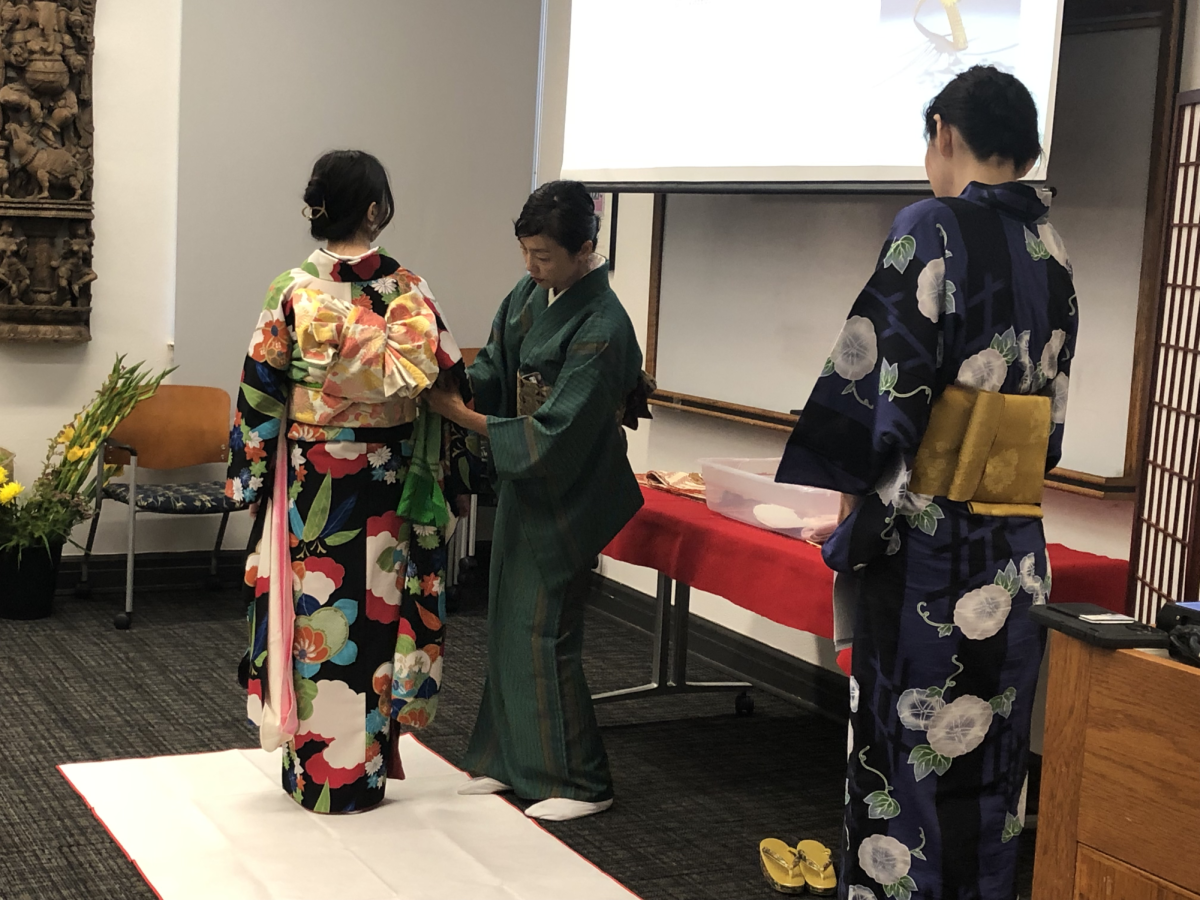Aarya Desai said she was shocked to see entire sections dedicated to the pandemic in her Issues and Policies in American Government class this summer.
The public health sophomore said the class had two subunits to show how the coronavirus pandemic has affected the oil crisis between Saudi Arabia and Russia as well as U.S. and China trade relations.
“It’s really cool to see and understand the different policy actions governments are taking now rather than learning about it in a couple of years,” Desai said. “Application is a key part to any learning, and I’m able to do that every day now.”
As the pandemic continues, professors from multiple departments are adjusting their curriculum to incorporate current events involving COVID-19.
Clinical assistant professor Dr. Marilyn Felkner said she didn’t have to restructure the coursework for her Introduction to Public Health class because COVID-19 is such a natural fit to the major. Instead, she used the pandemic as an example to enhance core concepts.
“I always give a lecture on the FDA approval of vaccines,” Dr. Felkner said. “This year I focused on COVID-19 as an example to look at where they were in the approval process and how much was left to be done, so students could conceptualize the true timeline and procedures associated with administering a vaccine safely.”
Dr. Felkner said for the fall semester, other public health faculty have also decided to incorporate the coronavirus heavily into their programs.
“We will be using COVID to help students concretely understand the things learned in previous classes that have been theoretical concepts (and) are now very real to us,” Dr. Felkner said.
Other departments, such as international relations, have made more significant adjustments to curriculum requirements.
Cameron Waltz is an international relations and global studies, Asian studies and Chinese sophomore. Waltz said the department has rescinded their mandatory study abroad requirement for anyone graduating between now and spring 2021.
“I still have to fulfill this requirement because I’m only a sophomore,” Waltz said. “I know I have lots of time, but I’m concerned because of continuing travel restrictions on Americans.”
In the spring semester, Waltz said one of his Asian studies classes discussed the effects of the coronavirus pandemic in relation to China. He said he believes U.S. and China relations will be discussed substantially in his fall Asian studies class.
“I’m biased, of course, to all the changes in discussions because the content fits so well with my majors,” Waltz said. “The trajectory of the relationship between China and the U.S. is escalating every day, and it’s nice to be able to touch on that in all my classes.”
Dr. Felkner said she believes that no matter what the subject matter is, incorporating COVID-19 into the material is beneficial to not only enhance learning, but help students feel some sense of reassurance.
“I don’t want students to feel completely out of control,” Dr. Felkner said. “Being educated enough to explain and understand these concepts is beneficial to everyone.”





















